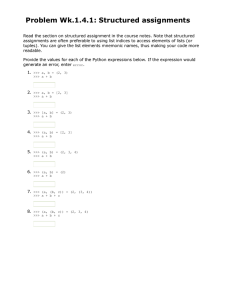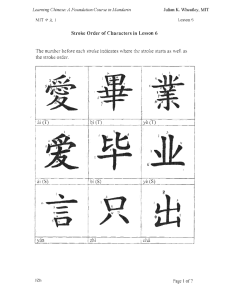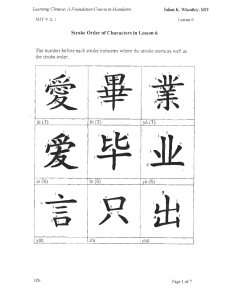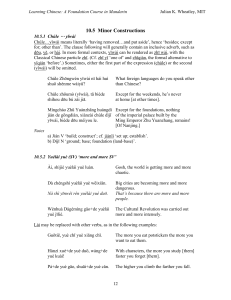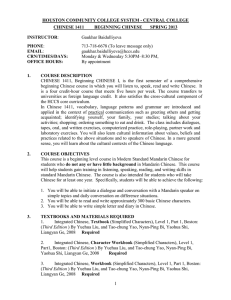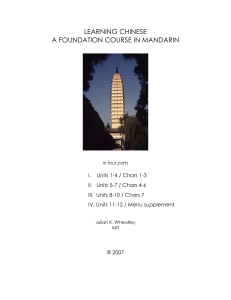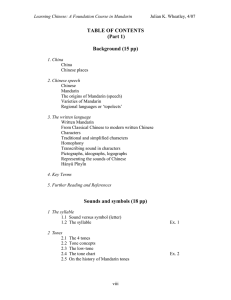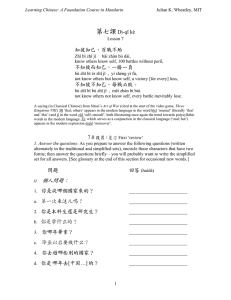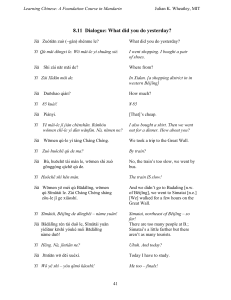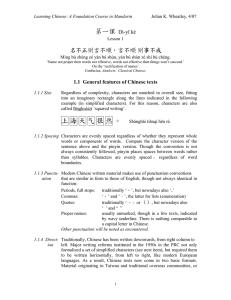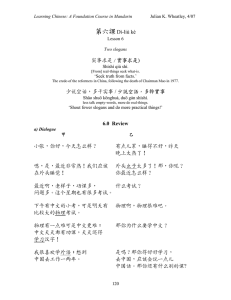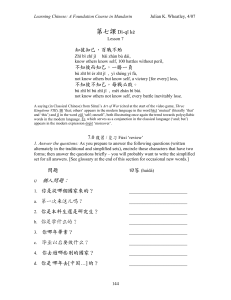TABLE OF CONTENTS (Part 4) UNIT 11 (33 pp)
advertisement
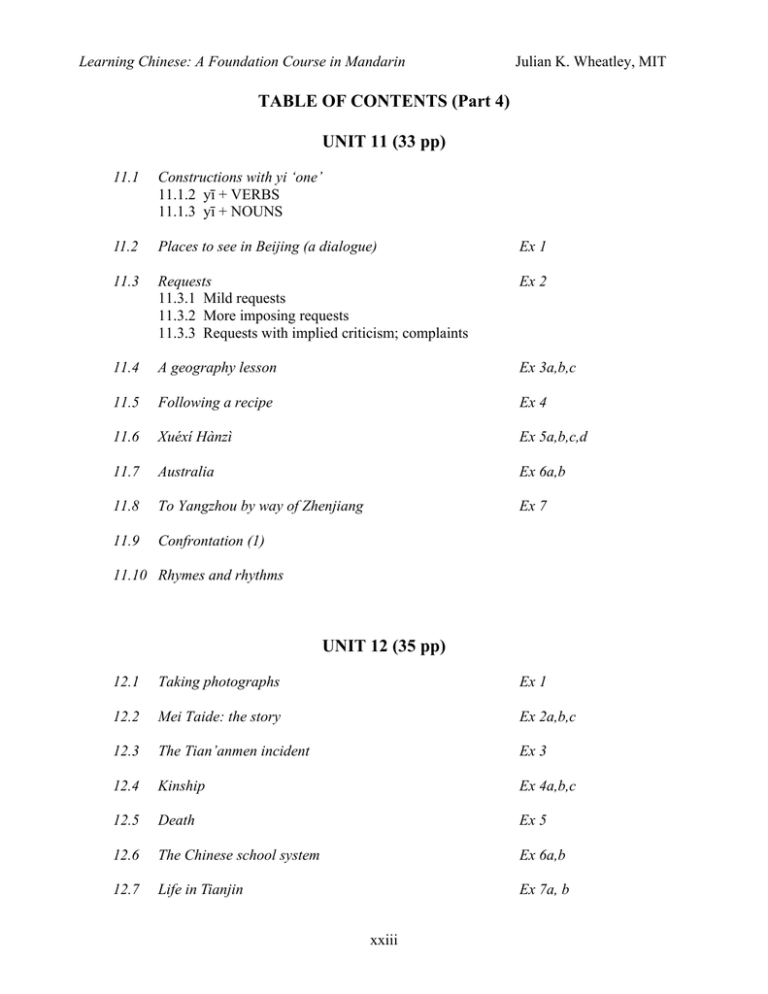
Learning Chinese: A Foundation Course in Mandarin Julian K. Wheatley, MIT TABLE OF CONTENTS (Part 4) UNIT 11 (33 pp) 11.1 Constructions with yi ‘one’ 11.1.2 yī + VERBS 11.1.3 yī + NOUNS 11.2 Places to see in Beijing (a dialogue) Ex 1 11.3 Requests 11.3.1 Mild requests 11.3.2 More imposing requests 11.3.3 Requests with implied criticism; complaints Ex 2 11.4 A geography lesson Ex 3a,b,c 11.5 Following a recipe Ex 4 11.6 Xuéxí Hànzì Ex 5a,b,c,d 11.7 Australia Ex 6a,b 11.8 To Yangzhou by way of Zhenjiang Ex 7 11.9 Confrontation (1) 11.10 Rhymes and rhythms UNIT 12 (35 pp) 12.1 Taking photographs Ex 1 12.2 Mei Taide: the story Ex 2a,b,c 12.3 The Tian’anmen incident Ex 3 12.4 Kinship Ex 4a,b,c 12.5 Death Ex 5 12.6 The Chinese school system Ex 6a,b 12.7 Life in Tianjin Ex 7a, b xxiii Learning Chinese: A Foundation Course in Mandarin 12.8 Manner adverbials 12.8.1 Reduplication and the adverbial marker -de 12.8.2 Manner adverbials versus predicate complements 12.8.3 The three ‘de’s’ 12.4 A vivid event (dialogue) 12.9 Confrontation (2) (dialogue) 12.9.1 Expletives and swearwords 12.9.2 Dialogue Julian K. Wheatley, MIT 12.10 The Northwind and the Sun. The Chinese Menu (Zhōngguó càidān) (23 pp) Part I: Preliminaries 1. Types of Chinese food 2. The names of dishes 3. Some specialized menu terms 4. The 8 Chinese cuisines (bā ge càixì) 5. Methods of cooking (pēngtiáo fàngfǎ) 6. Spices and seasonings (zuóliào) 7. Ways of cutting ( qiēfǎ ) 8. Tools (gōngjù), with example sentences 9. Usage (shuōfǎ) Part II: Dialogue in a Restaurant 1. Character version 2. Pinyin version Part III. Sample menu items 完 xxiv MIT OpenCourseWare http://ocw.mit.edu 21G.104 Chinese IV (Regular) Spring 2006 For information about citing these materials or our Terms of Use, visit: http://ocw.mit.edu/terms.
